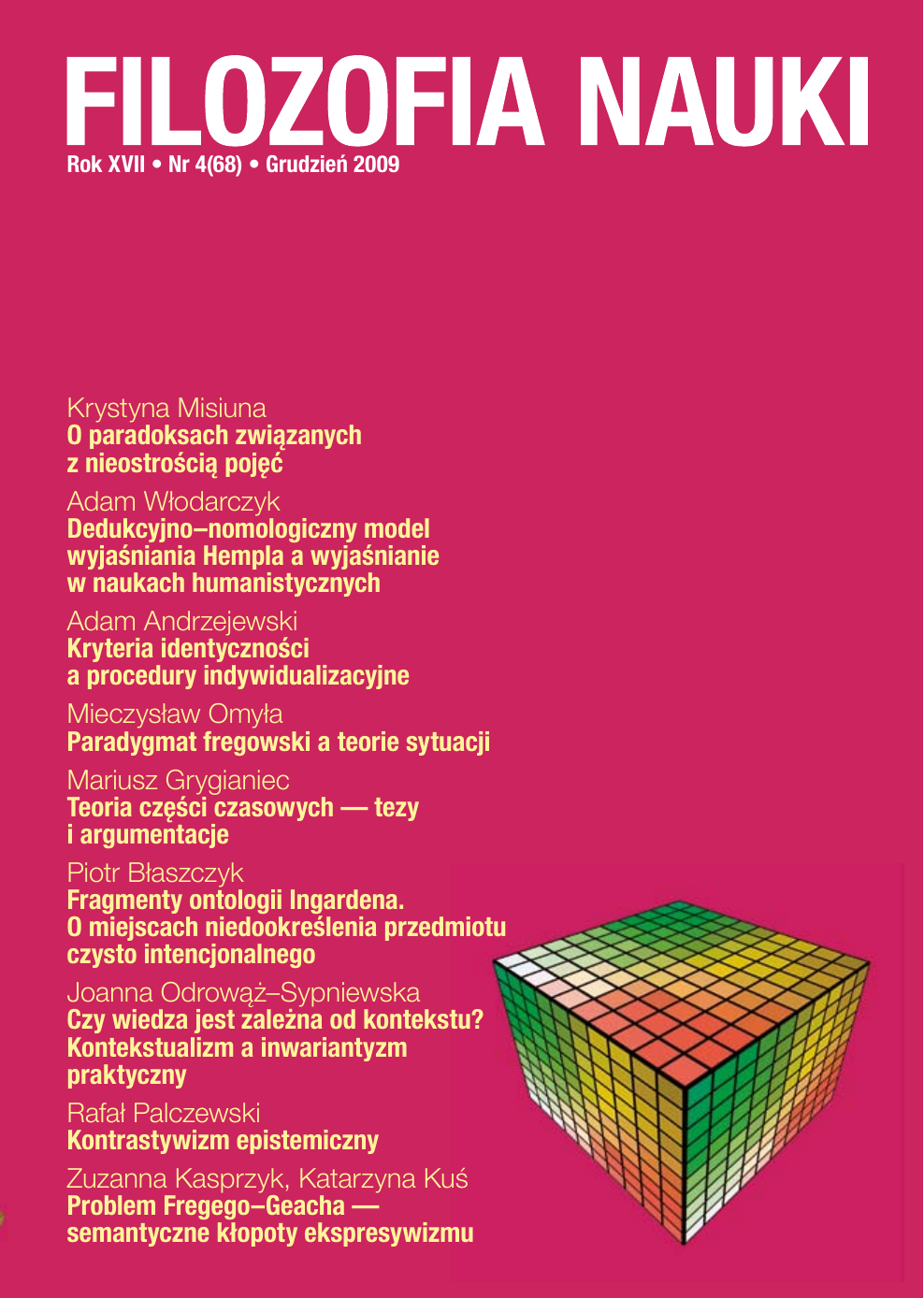The Frege-Geach Objection – Semantic Problems of Expressivism
Keywords:
the Frege-Geach objection, expressivism, expression relation, moral languageAbstract
Expressivists distinguish between two languages: the descriptive and the normative. The moral sentences belonging to the latter do not state facts, therefore have no truth conditions and only express moral approval or disapproval towards the evaluated object. This proposition faced the charge that it is possible to find unasserted semantic contexts in which moral sentences appear to be true (Frege-Geach objection). The paper shows how Blackburn (1988) dealt with this problem. We go on to argue that in order to accept Blackburn's solution one needs to have a clear concept of what it is 'to express'. We show which conditions this relation has to fulfill so as to make the theory of expressivism coherent. Using as examples two popular notions of expression relation - expression as a symptom (Husserl, Ajdukiewicz, Ossowska) and expression as a causal relation (Ayer) - we demonstrate that neither of these notions is adequate for the expressivists' purposes, which leads to the conclusion that expression relation remains mysterious and there is a serious gap in the theory.Downloads
Published
2009-12-01
How to Cite
Kasprzyk, Z., & Kuś, . K. (2009). The Frege-Geach Objection – Semantic Problems of Expressivism. The Philosophy of Science, 17(4), 131–147. Retrieved from https://fn.uw.edu.pl/index.php/fn/article/view/590
Issue
Section
Articles















 Filozofia Nauki/The Philosophy of Science | ISSN 1230-6894 | e-ISSN 2657-5868
Filozofia Nauki/The Philosophy of Science | ISSN 1230-6894 | e-ISSN 2657-5868